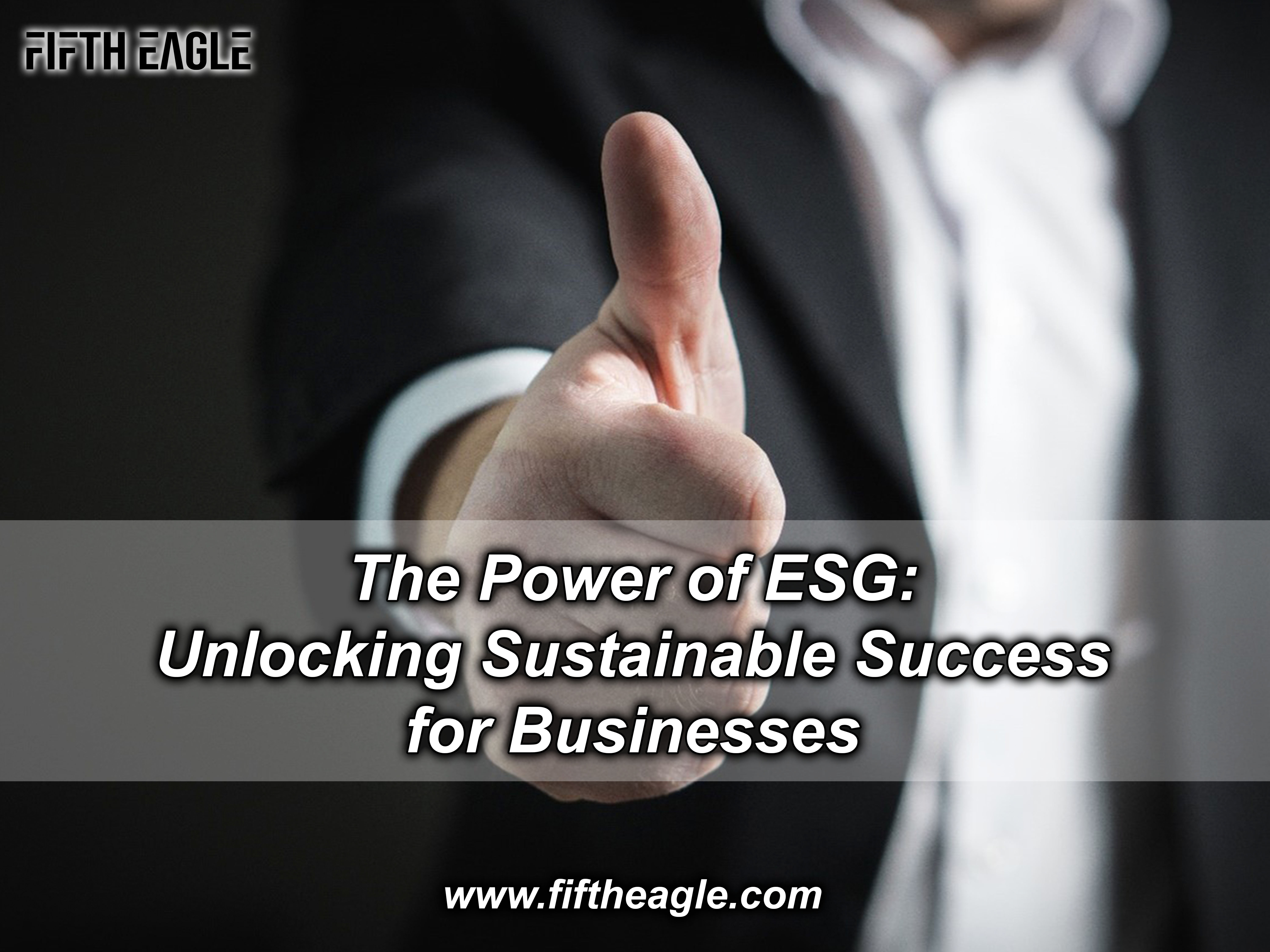In recent years, the concept of Environmental, Social, and Governance (ESG) has gained significant traction across industries. ESG represents a holistic approach to business sustainability, encompassing environmental stewardship, social responsibility, and effective governance practices. While some may view ESG as a legal or ethical obligation, forward-thinking businesses recognise that embracing ESG goes beyond corporate social responsibility. In fact, based on the green strategies outlined in Dan Esty’s and Andrew Winston’s bestseller ‘Green to Gold’ referenced below, integrating ESG into business can lead to substantial benefits, including cost reduction, revenue increase, risk reduction, and intangible value generation. In the following paragraphs we will delve into these key aspects and shed light on why ESG is undeniably good business.
Cost Reduction
By adopting ESG practices, businesses can identify and implement strategies that drive cost reduction throughout their operations. One of the primary cost-saving factors is resource efficiency. By optimising energy consumption, water usage, and waste management, companies can reduce their utility expenses and minimise waste disposal costs. Furthermore, incorporating sustainable supply chain practices can drive efficiency gains. This includes streamlining transportation, reducing packaging waste, and optimising inventory management. Such measures not only cut costs but also enhance a company’s reputation as a responsible and environmentally conscious organization, attracting eco-conscious customers and investors.
Revenue Increase
ESG initiatives can open new avenues for revenue generation and foster innovation. Today, consumers increasingly prefer environmentally and socially responsible products and services. By incorporating sustainability into product design, production processes, and marketing strategies, businesses can tap into this growing market demand. Moreover, businesses that successfully align their operations with ESG principles often enjoy enhanced brand loyalty, attracting a loyal customer base that values responsible business practices. These factors contribute to increased sales and market share, ultimately driving revenue growth.
Risk Reduction
Addressing environmental, social and governance risks is a critical component of effective risk management. ESG provides a framework for businesses to identify and mitigate potential risks and vulnerabilities. Environmental risks such as climate change, resource scarcity, and regulatory changes can impact supply chains and expose businesses to potential disruptions. By proactively addressing these risks, companies can minimise their vulnerability, build resilience, and ensure business continuity.
Similarly, socially responsible practices, such as promoting diversity and inclusion or ensuring ethical labour standards, mitigate potential legal, operational, and reputational risks. Managing ESG risks not only protects the company’s bottom line but also safeguards its long-term viability and resilience.
Intangible Value Generation
ESG initiatives can also generate intangible value for businesses. By actively engaging in sustainable practices, companies can enhance their brand reputation, strengthen customer trust, and foster long-term loyalty. Consumers and employees are increasingly gravitating toward purpose-driven businesses that demonstrate a commitment to social and environmental well-being.
Furthermore, a strong ESG performance can attract and retain top talent, driving employee satisfaction, engagement, and productivity. Younger generations in particular, place high importance on working for organisations that align with their values. By promoting a positive workplace culture, prioritising diversity and inclusion, and investing in employee well-being, businesses can become employers of choice and gain a competitive advantage.
Conclusion
The business case for ESG is becoming increasingly compelling. By integrating environmental, social, and governance practices into their core strategies, businesses can reap numerous benefits. ESG provides avenues for cost reduction, revenue growth, risk mitigation, and intangible value generation. Beyond being a moral imperative, sustainable business practices are now fundamental to long-term success, helping companies build resilience, stay relevant, and thrive in an ever-evolving global marketplace.
As we move towards a more sustainable future, businesses must recognise the tremendous opportunities that lie in embracing ESG. By investing in a sustainable framework today, companies can create a brighter, more profitable, and inclusive tomorrow for themselves, their stakeholders, and the planet as a whole.

